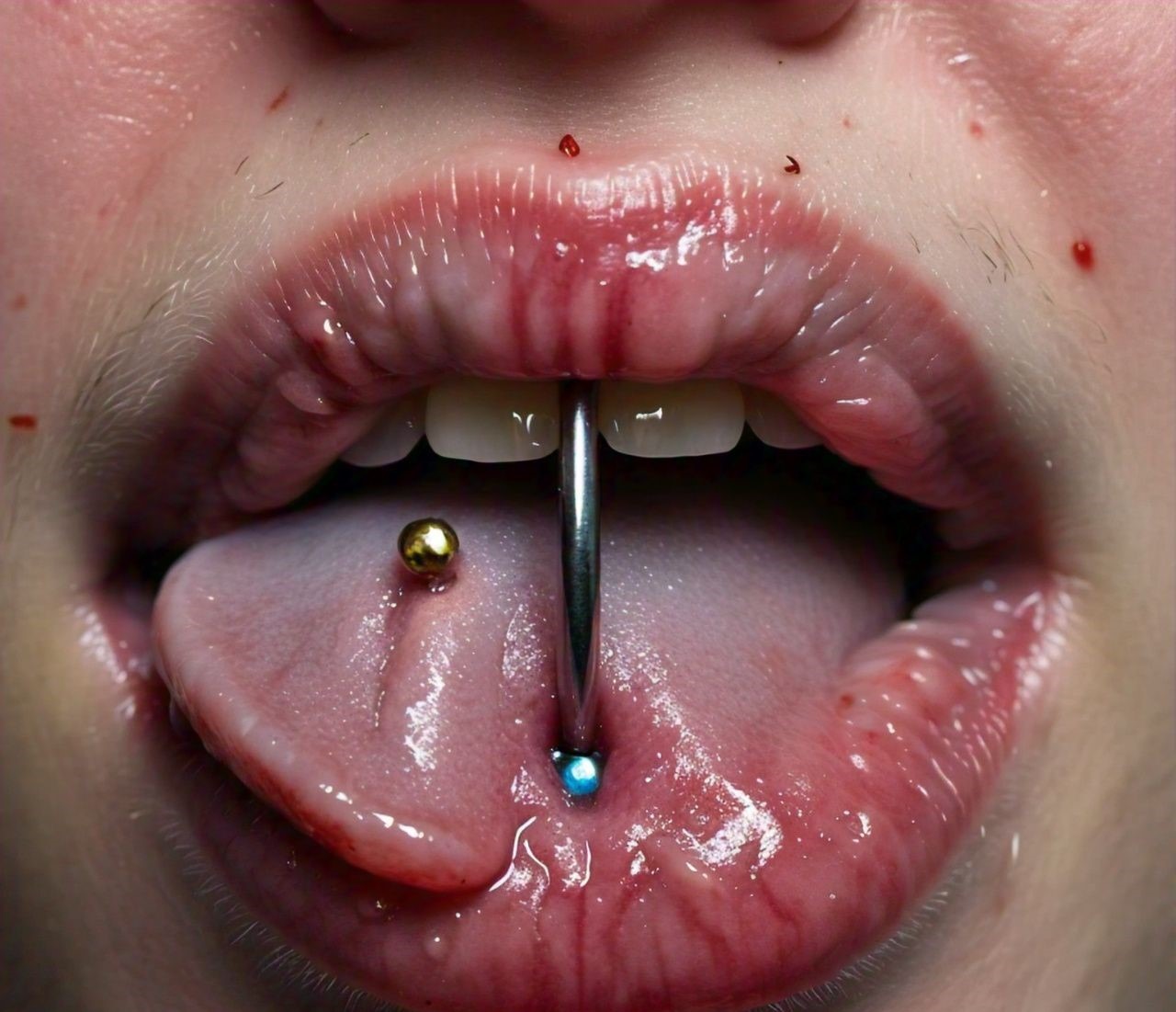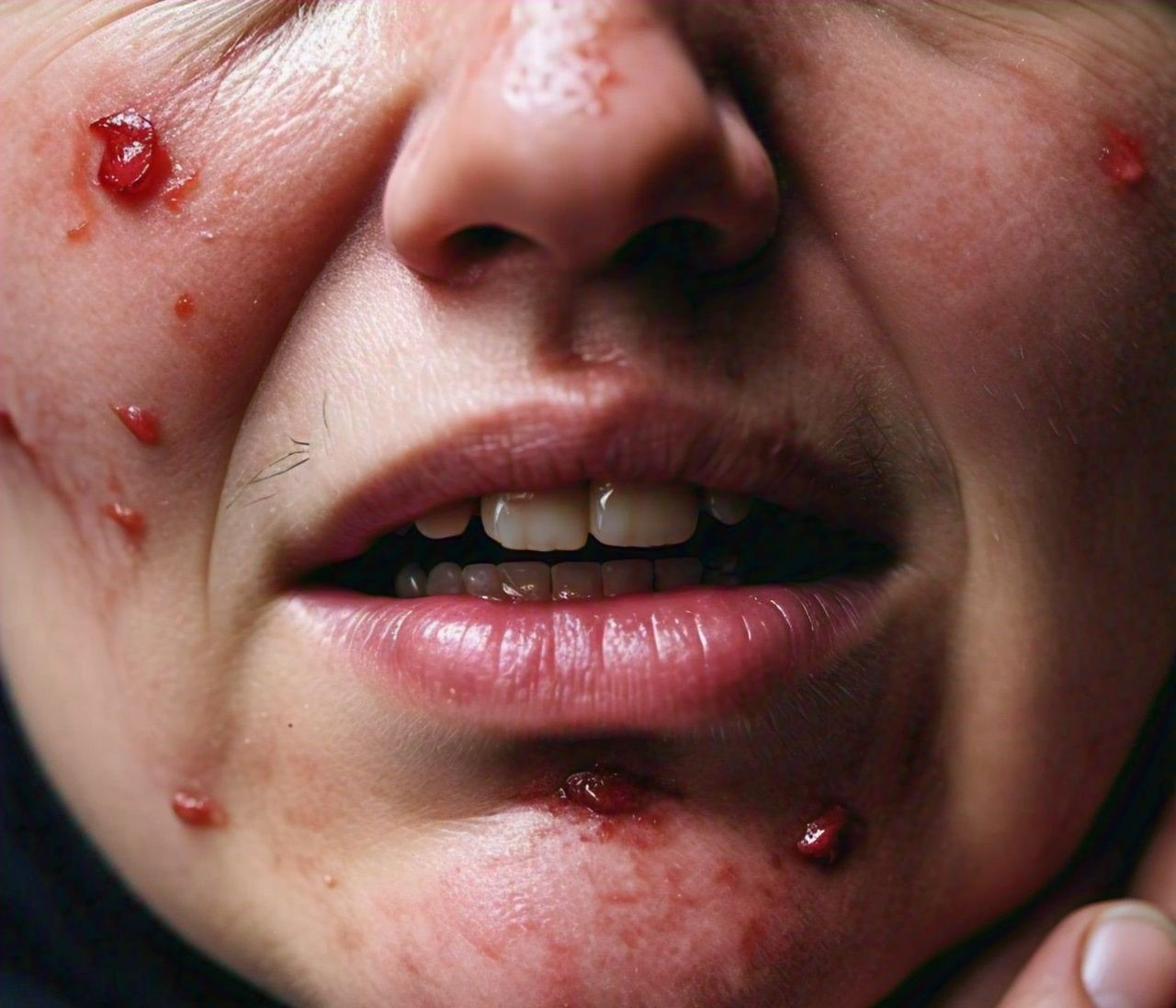- Introduction: Infection From Tongue Piercing
- Understanding Tongue Piercing Infections
- Common Remedies for Tongue Piercing Infections
- The New Remedy: Innovative Approaches to Treating Tongue Piercing Infections
- Prevention Tips: Avoiding Future Infections
- Risks and Complications of Untreated Tongue Piercing Infections
- When to See a Doctor
- Conclusion
Introduction: Infection From Tongue Piercing
Tongue piercings are all the rage, offering a unique blend of self-expression and cultural flair. But with every cool trend comes some baggage, and for this, it’s the risk of infections. Many folks dealing with a tongue piercing infection often face it because of poor aftercare or dodgy, unsterilized gear during the procedure. Spotting these Infection From Tongue Piercing early on is super important because, left unchecked, they can lead to serious oral or even broader health problems. This piece dives into the whys, the warning signs, and some tried-and-true remedies—including a cutting-edge way to tackle those pesky infections.
Understanding Tongue Piercing Infections
What Causes an Infection From Tongue Piercing?
Infections from tongue piercings usually kick off when bacteria find their way into the wound during or after the piercing process. These bacteria can sneak in from several places:
- Improper Sterilization: When the tools or jewelry aren’t sterilized properly, harmful bacteria might get into the wound right from the start.
- Poor Oral Hygiene: The mouth’s a hotspot for bacteria. If you slack on oral hygiene, these bacteria can easily infect a fresh piercing.
- Touching the Piercing: Touching your piercing with dirty hands adds even more bacteria to the mix.
- Eating or Drinking Certain Foods: Spicy, acidic, or dairy-based foods can irritate your piercing, making it more prone to infections.
- Smoking and Alcohol: Both smoking and alcohol can slow down healing, which ups the chances of getting an infection.
To dodge these issues, sticking to a strict oral hygiene routine and following aftercare instructions to the letter is key.
Signs and Symptoms of an Infected Tongue Piercing
Catching the signs of an infection early can save you a world of trouble. Here’s what to watch for if you suspect your tongue piercing might be infected:
- Redness and Swelling: Some swelling is normal right after you get pierced, but if it sticks around too long or gets worse, especially with redness, you could be dealing with an infection.
- Pain: It’s normal to feel some pain at first, but if the pain doesn’t ease up or gets worse after a few days, that’s a red flag.
- Discharge: If you notice yellow or green pus coming from the piercing, that’s a pretty clear sign something’s wrong.
- Fever: Running a fever can mean the infection is spreading beyond just the piercing site.
- Difficulty Moving the Tongue: If it gets hard to move your tongue or it feels stiff, the infection might be getting serious.
If any of these symptoms pop up, don’t wait—take steps right away to stop the infection from getting worse.g.
Common Remedies for Tongue Piercing Infections
Over-the-Counter Treatments
For those experiencing a mild infection from a tongue piercing, over-the-counter treatments can be an effective first line of defense.
- Antiseptic Mouthwashes: Mouthwashes containing antiseptic properties, such as chlorhexidine, can help eliminate harmful bacteria. It’s important to choose a mouthwash that does not contain alcohol, as alcohol can irritate the piercing.
- Topical Antibiotics: Applying topical antibiotics like Neosporin around the infected area can help reduce bacterial growth. Be sure to consult with a healthcare professional before using any antibiotic treatment to ensure it’s appropriate for your situation.
- Pain Relievers: Over-the-counter pain relievers like ibuprofen can help manage pain and reduce inflammation during the healing process.
Home Remedies for Tongue Piercing Infections
Home remedies offer natural and accessible ways to treat an infection from a tongue piercing. Here are some of the most effective methods:
Saltwater Rinse
One of the simplest and most effective remedies is a saltwater rinse. Salt has natural antiseptic properties that can help reduce bacteria and promote healing.
- Preparation: Mix 1 teaspoon of sea salt or non-iodized salt with 8 ounces of warm water.
- Application: Swish the solution around your mouth for 30 seconds, then spit it out. Repeat this process 2-3 times a day until the infection subsides.
Cold Compresses
Applying a cold compress can help reduce swelling and numb the pain associated with an infected tongue piercing.
- Preparation: Wrap ice cubes in a clean cloth or use a cold pack.
- Application: Apply the compress to the outside of your mouth, near the infected area, for 10-15 minutes. Repeat as needed throughout the day.
Turmeric Paste
Turmeric is known for its anti-inflammatory and antibacterial properties, making it a valuable home remedy for infections.
- Preparation: Mix a small amount of turmeric powder with water to create a paste.
- Application: Apply the paste directly to the infected area and let it sit for a few minutes before rinsing with warm water. Do this twice daily until the infection improves.
Honey Application
Honey, particularly Manuka honey, has natural antibacterial properties that can aid in healing infections.
- Application: Apply a small amount of honey directly to the infected area using a clean finger or cotton swab. Leave it on for a few minutes before rinsing. Repeat several times a day.
The New Remedy: Innovative Approaches to Treating Tongue Piercing Infections
With advancements in natural medicine and technology, new remedies are emerging that offer alternative ways to treat infections from tongue piercings.
Probiotics for Oral Health
Probiotics, commonly known for their benefits to gut health, are now being explored for their potential to balance oral bacteria. Introducing beneficial bacteria to the mouth can help combat harmful bacteria responsible for infections.
- Recommended Products: Probiotic lozenges or oral probiotics specifically designed for oral health can be used daily. These products can help maintain a healthy balance of bacteria in the mouth, reducing the likelihood of infection.
Essential Oils
Essential oils have long been used for their therapeutic properties, and some are particularly effective in treating oral infections.
Tea Tree Oil
Tea tree oil is renowned for its powerful antibacterial and anti-inflammatory effects.
- Application: Dilute tea tree oil with a carrier oil (such as coconut oil) before applying it directly to the infected area with a cotton swab. Use this treatment 2-3 times daily.
Clove Oil
Clove oil is known for its analgesic and antiseptic properties, making it an excellent choice for relieving pain and fighting infection.
- Application: Like tea tree oil, clove oil should be diluted with a carrier oil before application. Apply it to the infected area 2-3 times daily.
Laser Therapy
Laser therapy is a relatively new approach to treating oral infections. It works by using focused light to target and kill bacteria while promoting healing.
- How It Works: The laser’s light penetrates the infected tissue, killing bacteria and reducing inflammation without damaging surrounding tissue.
- Availability and Cost: Laser therapy is typically performed by a dentist or oral surgeon. While it may be more expensive than other treatments, it offers a pain-free and effective option for severe infections.
Prevention Tips: Avoiding Future Infections
Preventing infections from tongue piercings is essential for maintaining oral health and avoiding the discomfort and risks associated with infections.
Proper Aftercare for New Tongue Piercings
Following aftercare instructions is crucial for preventing infections during the healing process.
- Cleaning: Rinse your mouth with a saline solution or an alcohol-free mouthwash after every meal and before bed.
- Avoiding Irritants: Refrain from eating spicy, acidic, or hot foods that can irritate the piercing.
- Oral Care: Brush your teeth twice a day and floss daily, being careful around the piercing site.
- Hands Off: Avoid touching the piercing with your hands, as this can introduce bacteria.
Maintaining Oral Hygiene with a Tongue Piercing
Even after the piercing has healed, maintaining good oral hygiene is key to preventing future infections.
- Daily Care: Brush and floss regularly, and use an antiseptic mouthwash to keep harmful bacteria at bay.
- Regular Check-ups: Visit your dentist regularly to ensure your piercing and oral health are in good condition.
When to Change Your Tongue Piercing Jewelry
Changing your jewelry too soon can cause irritation and increase the risk of infection.
- Signs to Change Jewelry: If you notice discoloration, swelling, or discomfort, it may be time to change your jewelry.
- Choosing the Right Jewelry: Opt for high-quality materials like titanium or surgical steel to minimize the risk of irritation or allergic reactions.
Risks and Complications of Untreated Tongue Piercing Infections
Short-Term Risks
If left untreated, an infection from a tongue piercing can quickly escalate. Short-term risks include:
- Spread of Infection: The infection can spread to other parts of the mouth, leading to more severe complications.
- Development of Abscesses: Pockets of pus can form, requiring surgical intervention.
Long-Term Complications
Chronic or severe infections can lead to more serious health issues:
- Tissue Damage: Persistent infections can damage the tongue and surrounding tissues, potentially leading to permanent scarring or loss of function.
- Systemic Infections: In rare cases, the infection can spread to the bloodstream, leading to life-threatening conditions such as sepsis.
When to See a Doctor
Recognizing Severe Infections
It’s important to recognize when a tongue piercing infection requires professional medical attention.
- Symptoms to Watch For: High fever, persistent or worsening pain, difficulty breathing or swallowing, and the presence of red streaks around the piercing are signs that you need to see a doctor immediately.
Treatment Options Available Through Healthcare Providers
Healthcare providers have a range of treatment options for severe infections:
- Prescription Antibiotics: In cases where over-the-counter remedies are ineffective, a doctor may prescribe stronger antibiotics to combat the infection.
- Surgical Intervention: In extreme cases, surgical drainage of abscesses or even removal of the piercing may be necessary.
Conclusion
Infections from tongue piercings can be painful and concerning, but with the right knowledge and care, they can be effectively managed and prevented. By following proper aftercare practices, maintaining good oral hygiene, and exploring both traditional and new remedies, you can ensure that your tongue piercing remains a safe and stylish part of your personal expression. Always remember that if an infection does not improve or if symptoms worsen, seeking professional medical advice is essential. Your health and safety should always come first.
For more information on fitness and health, check out these resources:
Explore more articles on our site:
- How to Increase Running Stamina for Beginners at Home
- What Happens if You Don’t Get Enough Sleep Consistently: Effects and Solutions
- The Ultimate Guide to Healthy Living in 2024
- The Future of Artificial Intelligence: What to Expect
- Unlocking the Potential of Chat GPT Software: Revolutionizing AI Conversations
- Best Sleeping Position for Peripheral Artery Disease [New 2024]
- How to Increase Running Stamina for Beginners at Home
- 5 New Inner Thigh Exercises for Men and Women




